Fall through Spring Read online
Page 2
But that curiosity hadn’t been enough to keep him from going off to school and falling in love with Rebecca Jorgenson, who was serious and earnest and who wrote wickedly funny fan fiction centered in the Star Trek universe. Some of it was Spirk, and Clay enjoyed the hell out of reading that, even if he didn’t tell Rebecca.
But kissing another guy was the least of his problems in college.
Rebecca had broken up with him—and she’d taken his entire peer group with her.
Suddenly, there was nobody to play video games with, nobody to talk sci-fi with. He felt bereft, and his grades had slipped. Not horrendously—no. He could have taken some of those tests in his sleep. But if he wanted his MS in biochemistry, he needed a certain GPA, and he didn’t think that was going to happen.
He’d tried talking to his parents over Skype, but every time he said grades, he got, “Oh, honey, you can just try a little harder. I’m sure it will come out okay. Did we tell you that your sister is doing her residency at John Hopkins, in the oncology ward? And she’s met a nice young man—or rather, reunited with him. I understand that she used to go to school with him! Anyway, she sends her love. Now what are you going to do to fix those grades?”
“That’s nice for Sabrina, Mom, but I’m not sure I even like biochemistry. I mean, I wanted to do something for the environment, but most of the people making really big strides in the field aren’t just brilliant—they also have no lives!”
This was, in fact, why Rebecca had broken up with him. Not because she didn’t care about him, but because she had landed an internship studying the long-term effects of the bacteria that they were hoping would eat the plastic islands made of trash floating out over the ocean. She was a year ahead of him and going to be spending her entire senior year and the year after that out on the Atlantic Ocean, taking samples and coming up with hypotheses, and she hadn’t wanted to string Clay along.
But Clay had become attached, and he’d been upset, and his dormmate had gotten weird because he’d actually cried after he’d come back from the breakup dinner. And the entire biochemistry department had sort of labeled him an emo wreck and gotten out the emotional barge poles to give him his space.
So the chocolate chip cookie had become his best friend again, and so had pizza because it was delivered, and he’d officially drunk enough soda in the past three months to make up for all of the years before high school when he hadn’t even tried it as an act of rebellion.
Oh yeah.
Some kids went to college to smoke weed, do blow, fuck all the things, and politically shit on their parents’ heroes.
Apparently, Clay Carpenter went to school to eat.
Because as sources of comfort went, the chocolate chip cookie had never let him down, and pizza was always ready to give him the “attaboy” if he needed it.
But now his parents could see him up close and personal, and it turned out the sources of fresh food in the campus commissary were the last things Clay wanted to talk about.
“Mom, can we not talk about my weight for a damned minute here?” he begged.
“Well, what do you want to talk about, honey?” She said it like there couldn’t possibly be anything else wrong.
“Mom, it’s my major. I don’t think biochemistry is my thing.” Because it’s breaking my heart, and I can do the work, but it just doesn’t interest me that much, and because I want to work with people more than I want to work with amoebas.
His mother and father looked stunned. Poleaxed. Because, well, they’d all discussed biochemistry over the dinner table, and they’d been so on board with Clay’s decision that they’d carefully engineered since he was fourteen years old.
“Well, Clay,” his mother said carefully, “what do you want to do?”
“Something people-oriented,” Clay said.
“But with science.” His mother’s eyes never dimmed, and she sounded so proud of herself, as though yes, her son the scientist in whatever capacity was exactly what she wanted.
“Sure,” Clay said, shoulders slumping defeatedly. “Science. Maybe the business end, though. So we can use it ethically.” There. That sounded socially conscious, right?
“Good, honey. You can stay in science for your bachelor’s and move on to an MBA—how’s that?”
Clay shrugged and wanted for a moment to just spill the whole thing out on them, the self-doubting, Rebecca, the realization that he seemed somehow defective because he was more attached to people than to his education. Even the bisexuality, because that would be great to have someone to talk with about how his dormmate wasn’t a bad guy, sort of dorky-looking with crooked teeth and too much hipster scruff, but after Rebecca had broken up with him, he’d had fantasies about Fergus sort of embracing him and holding him tight. And when he went to sleep with these fantasies, he woke up with wood.
And God, he really wanted to talk with someone about that kiss with Jordyn that he kept tied up next to his heart, because it was starting to dawn on him that if nothing else, bisexuality doubled the dating pool. And at this point, he’d take someone, anyone, who he could bare his soul to and who would still love him in return.
HE ESPECIALLY felt that way after he entered the MBA program.
Because he hated the program. He hated the business world. He hated the homework, and he hated himself because his parents were paying for this and he couldn’t think of a way to tell them it was just not his jam.
Right before graduation, he went to a job fair. He was wearing a new wool suit and shiny wing-tip shoes and had shaved and had his hair cut and even buffed his nails.
He had three interviews lined up that day, and he was starving.
His parents had sent him the suit four months earlier, when he’d signed up for the job fair, as “something to shoot for.”
Now, Clay had a steady allowance from home—not spectacular, but steady—and had applied for student loans, so he had grant money. He could have bought one that fit, but this one was about two sizes too small, and the hint was obvious.
They loved him, but they would love him so much more comfortably if he was comfortable in that suit.
So he’d dieted.
He’d started eating apples in the morning instead of donuts. He’d stopped eating pizzas and started eating chicken sandwiches. All of the things he’d learned as a child at his mother’s dinner table had come back to him, and he’d taken them on in an effort to be the son his wonderful parents had earned with all of their kindness and their attention and their sacrifices to give him an education.
The suit fit great—it really did. The shoes were shiny and pretty, and he looked like a clean-cut all-American boy.
And the nice men in suits all smiled at him and told him his grades were wonderful and his background in science was necessary and important, and then asked him—at each interview—how he would feel if he had to fire mass quantities of employees in the lower tiers of the company in order to continue the company’s “main function as a producer in its field.”
He figured out later that he’d applied at midsized companies that all had to move so they could afford the overhead, because California’s land prices really were outer limits. But in that moment, as the horror of that third request dawned on him….
He snapped.
He didn’t know he snapped.
Clay Alexander Carpenter was nothing if not responsible.
He finished his schooling, moved back up to the Sacramento area, using his savings just as his parents taught him, bought a car, rented an apartment in a “startup” suburb, and got a job.
More specifically he got a job at a pizza joint. Where he proceeded to work, pay his rent, dodge his student loan officers, play as much PS4 as he could handle, and put on nearly a hundred pounds.
At Twenty-Four
“CLAY?” HIS mother’s voice quavered uncertainly over the phone. Well, his temper had been uncertain since he’d moved back to the area—he could admit it.
“Yeah, Mom,” he said, trying to
keep his irritation from spiking. He pushed her away. He knew it wasn’t fair. His parents truly had been as supportive as possible. Cheryl and Clyde Carpenter loved their baby boy—he knew that.
“Honey, your father got a notice about your student loans. We, uh, know your income isn’t what we’d hoped…. Do you need us to pay them off for you?”
Clay wanted to cry. Oh God. It was bad enough that he was a snarly asshole during his whole identity crisis, but did they think he was going to make his parents pay off his student loan debt?
“No, Mom,” he said, looking around his dismal apartment.
He had to admit—even for him, the place was looking a bit… well, décor done by takeout was how he’d described it to his last girlfriend.
She’d helped him clean it up, had made them chicken salads. He’d even lost a little weight with her, mostly because he hadn’t had to worry about what to feed himself.
But her old boyfriend had popped back into the picture, and even though she hadn’t said anything—she probably would have stayed with Clay just because she was that kind of stand-up kid—Clay had let her go.
It had been very emotional and very sappy-movie worthy—very, “But would I really be happy knowing you settled for me instead of reaching for me?” so she didn’t have to feel guilty.
But the reality was that she was gone, and he was still there with swollen feet, swollen fingers, and a back that kept bitching at him every time he got off the couch.
And no amount of extra shifts at Meteor Pizza, with the big pepperoni comet in the logo, was going to pay off his college bill.
With a groan he got up and showered, determinedly not looking at himself naked in the mirror, making sure he got all his creases and his other creases and the creases in those creases. He washed his longish brown hair, shaved his longish brown beard, and looked at his tired brown eyes in the mirror.
This was not the life he’d looked at in the brochure.
The very least he could do was pay for his own goddamned student loans.
He grabbed his laptop off the coffee table and moved it to the Formica kitchen table and loaded his resume into about six search engines.
And all of them spat out the same jobs he’d turned down the year before.
He scowled. No. God no. But what else was he going to do? What else was he qualified for?
And then he saw it. On one of his search engines, there was a list of related fields, with the number of job openings in parentheses next to it. And there, next to computer science, was the number 3000.
Clay blinked.
Yeah, sure. His degree wasn’t in computer science, but he’d spent all his spare change putting together his own gaming system ever since he went away to college.
He had a degree in molecular biochemistry, an MBA, and an overwhelming hobby.
He rewrote his resume with an appalling disregard for the facts and started looking up the dress codes for various IT jobs in the local businesses.
When he saw that he could wear jeans and a regulation polo to Tesko Tech, that was the first one on his list.
Skipper
“TESKO TECH, how can I help you?”
Clay winced at the earnestness of the guy sitting in the cubicle across from him. Tall, with fair skin, blue eyes, a fit body, and the smile of a golden retriever, his nameplate said Christopher Keith, but everybody in the office called him Skipper.
Clay had been tempted to hate him on sight. Something about him reminded Clay of every kid who had made fun of his Wookiee shirt in the second grade, and every kid since who had rolled their eyes at him or called him a fat asshole in the pizza parlor or decided his broken heart was too squishy to touch when he’d been in college.
But then he’d seen the inside of Skip’s cubicle.
The soccer trophies he could have done without—who keeps soccer trophies out of high school, right?
But there were gaming trophies in there, and lots of squishy, fiddly tchotchkes that Skip liked to play with when he was talking to someone and it was taking a lot of time, and a few team photos of a lot of guys who looked like they’d been rolling around in the mud and were proud of it.
Then Clay got a look at those “Lot of guys” and had a little pop of realization.
There were a lot of different faces in that team of guys looking at Skipper in adoration. This was not the same student population of Clay’s grammar school or his high school. There were lots of brown faces in that picture. And Skip loved those guys enough to put them up where he’d see them every day.
The other thing was that Skipper didn’t have his BA hanging up in there. Carpenter hid his—people assumed he had a four-year degree, and they thought it was in comp sci. Skip had a trade school certificate, and he came in wearing his green polo shirt and nicely pressed khakis every day, like just having this job was an honor.
Skipper didn’t slack to get this job. He wasn’t “slumming” because he had some sort of political distaste for the corporate world.
Being an IT guy in the basement of this company was Christopher Keith’s best thing. And he smiled and came in and did his best job at it, while Carpenter tried not to sneer at people who had never grasped the concept of reboot.
Skipper Keith—who talked genially to Clay every day and called him Carpenter like they were buddies and made special plans for them to go to lunch because he wanted a friend to eat healthy with—was really a rather wonderful creature. Clay gently refused his first couple of sallies to get Clay to play soccer, but he did take him up on gaming nights.
Skipper’s house—a tiny fixer-upper in the middle of Citrus Heights—had cracked tile that looked like someone had used baby shit as a palette, and a backyard originally crafted by ogres playing with sticks in the mud. His couch had probably been bought used, his carpet definitely needed to be replaced, and when he had his soccer friends over, including a brightly redheaded hyperactive little goof-in-a-box named Richie, to game together, people had to sit on his bed to play on the TV in the bedroom in order to fit more than ten people in the house total.
And Carpenter—who adopted that name like a badge of honor—couldn’t be happier, wedged into that claustrophobic little space. People sat on each other’s laps, they shoved a little, they slapped each other’s backsides, and they swore like college students at their controllers, at the television screen, at each other.
He wasn’t the most emo guy in the science department. He wasn’t the political guy getting his MBA. He wasn’t the hanger-on-er in someone else’s happy family.
He was surrounded by people who did not give three fucks about his weight, his family, his degree, or how badly he’d let down his parents.
Carpenter would have died for Skipper Keith.
But oddly enough, he didn’t feel the urge to kiss him. Going to work with him, accepting happy little tchotchkes from him for his birthday, gaming with him—these things were the highlight of his life, but Skipper felt like… well, like Calliope, really. Like a wonderful person who was there with unconditional love and acceptance. Clay had never kissed Calliope, and he’d never wanted to. She was too much of a shining star in his sky to want to touch her close enough to make her human. Skipper was the same way for Clay—no helpless yearnings, no dreaming about kissing. Just didn’t happen.
In fact, over the span of the next two years, he really didn’t have the urge to kiss anybody.
Until he realized that Skipper Keith and the little jackrabbit redheaded kid named Richie on the soccer team had fallen completely and irrevocably in love.
And Clay started to think about how maybe love wasn’t what he’d thought it was in the beginning. Maybe love wasn’t stolen cookies and forbidden kisses. Maybe love was love when your best friend changed everything that was wrong in his life so he could be the person you needed most.
So that’s what Clay was thinking—that’s exactly what Clay was thinking—when he met Dane Christian Hayes.
Dane and His Brother Go on an Adventure
<
br /> DANE HAYES’S mother was 95 percent wonderful, 4 percent evil, and 1 percent completely inscrutable. As he walked into his parents’ teeny house in Redwood City and checked the mail she’d left for him on the kitchen table, he reflected that today might be a 1 percent day.
“You got something,” she said, easing down to the table with a juice. Dane thought it looked suspiciously like Kool-Aid and vodka, which sounded awful, but he suspected it’s what got her through his older brother’s turbulent, awkward days as an adolescent with no filter between his mouth and his sex-obsessed brain. If Dane hadn’t been thoroughly gay himself, he suspected that Mason’s obsession with his own penis might have had Dane at least questioning himself. Luckily Mason did all that for the both of them.
Dane hesitated when he saw the letter from UC Davis on the table. Oh. This. It was a long-shot—he knew it. His grades were great. Applying to the animal husbandry department at Davis shouldn’t have been completely out of the realm of possibility. But his attendance had been… erratic. For his first six years in school, before his bipolar had been diagnosed, he’d been a disaster as a student. He’d managed to finish 90 percent of his classes, but the number of drops, of class changes, of changes in his major—the sheer level of heinous fuckery in his record….
Oy.
Then there was the two-year gap when he’d been wobbling on and off his meds, followed by three years when he’d actually earned a BS. He hadn’t cared in what.
In this case, it had been biochemistry, probably because he’d been interested in what was wrong with his own brain and had wanted to see what was doing in there. But he’d always loved animals, even though he’d lived at home and his father was allergic so he’d had to get all his animal contact as a volunteer at shelters. He’d applied to the animal husbandry program in much the same way he’d done most of his life, in fact. A sort of “Hey, what the hell? My grades don’t suck now; why not apply for the veterinary school, right?”

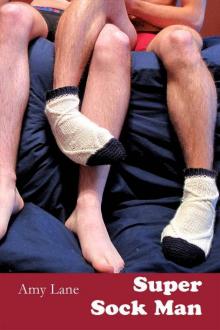 Super Sock Man
Super Sock Man Safe Heart (Dreamspun Desires Book 102)
Safe Heart (Dreamspun Desires Book 102)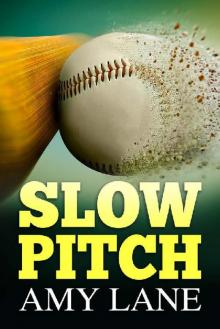 Slow Pitch
Slow Pitch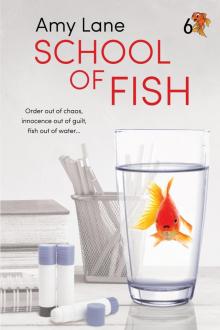 School of Fish
School of Fish Shades of Henry (The Flophouse Book 1)
Shades of Henry (The Flophouse Book 1) Ethan in Gold
Ethan in Gold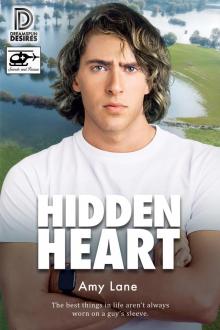 Hidden Heart
Hidden Heart Familiar Demon
Familiar Demon Shortbread and Shadows
Shortbread and Shadows Silent Heart
Silent Heart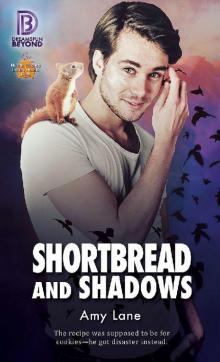 Shortbread and Shadows (Dreamspun Beyond Book 41)
Shortbread and Shadows (Dreamspun Beyond Book 41) All the Rules of Heaven
All the Rules of Heaven Shades of Henry
Shades of Henry Homebird
Homebird Under the Rushes
Under the Rushes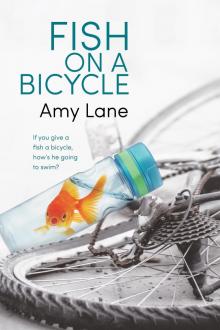 Fish on a Bicycle
Fish on a Bicycle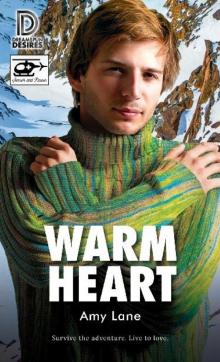 Warm Heart
Warm Heart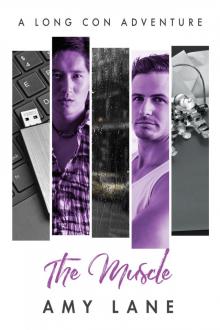 The Muscle
The Muscle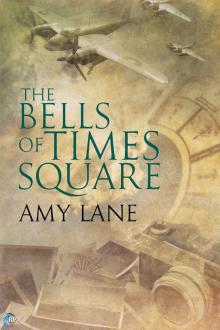 The Bells of Times Square
The Bells of Times Square![Jack&Teague [& Katy] stories 1-5 Read online](http://i1.bookreadfree.com/i/03/19/jackandteague_and_katy_stories_1-5_preview.jpg) Jack&Teague [& Katy] stories 1-5
Jack&Teague [& Katy] stories 1-5 Wounded, Volume 1
Wounded, Volume 1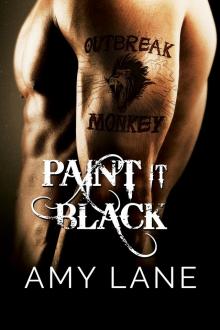 Paint It Black
Paint It Black The Virgin Manny
The Virgin Manny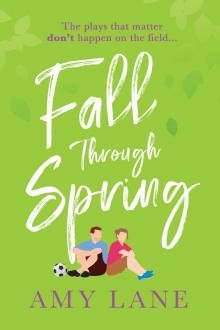 Fall through Spring
Fall through Spring Clear Water
Clear Water If I Must Lane
If I Must Lane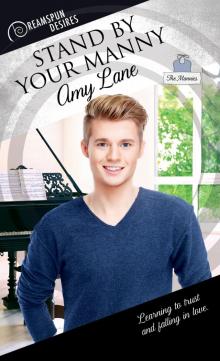 Stand by Your Manny
Stand by Your Manny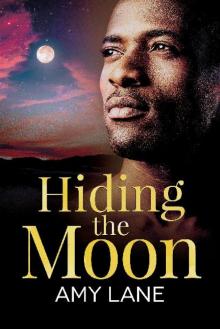 Hiding the Moon
Hiding the Moon Freckles
Freckles Chase in Shadow
Chase in Shadow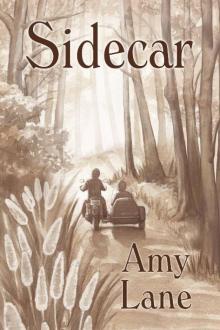 Sidecar
Sidecar Quickening, Volume 1
Quickening, Volume 1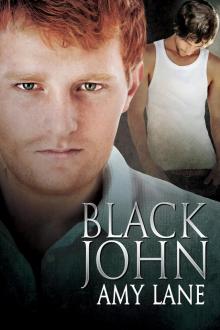 Black John
Black John Bobby Green
Bobby Green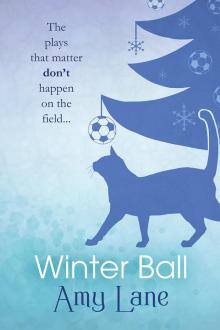 Winter Ball
Winter Ball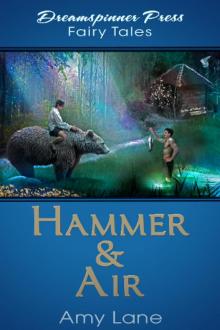 Hammer & Air
Hammer & Air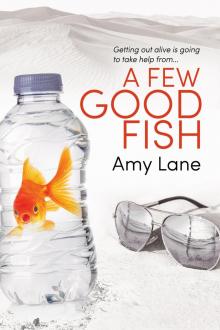 A Few Good Fish
A Few Good Fish Dex in Blue
Dex in Blue Quickening, Volume 2
Quickening, Volume 2 A Fool and His Manny
A Fool and His Manny Manny Get Your Guy (Dreamspun Desires Book 37)
Manny Get Your Guy (Dreamspun Desires Book 37)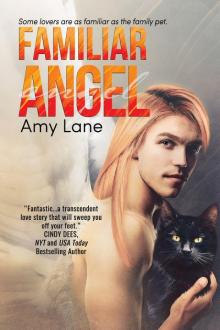 Familiar Angel
Familiar Angel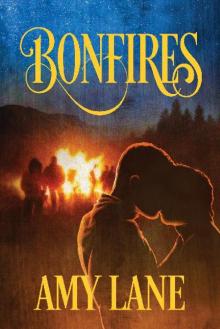 Bonfires
Bonfires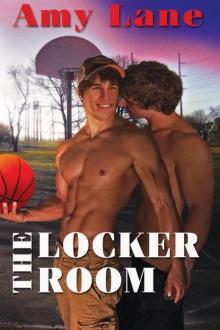 The Locker Room
The Locker Room Rampant, Volume 2
Rampant, Volume 2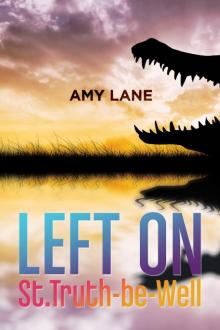 Left on St. Truth-Be-Well
Left on St. Truth-Be-Well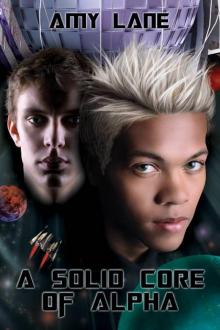 A Solid Core of Alpha
A Solid Core of Alpha Red Fish, Dead Fish
Red Fish, Dead Fish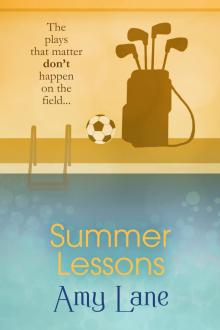 Summer Lessons
Summer Lessons Country Mouse
Country Mouse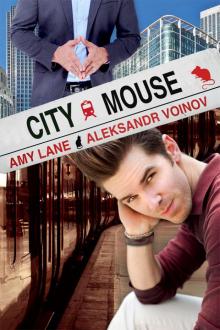 City Mouse
City Mouse Turkey in the Snow
Turkey in the Snow Rampant, Volume 1
Rampant, Volume 1 Bitter Moon Saga
Bitter Moon Saga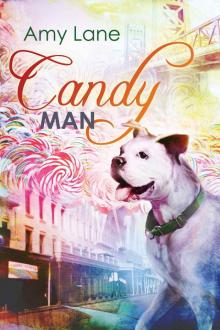 Candy Man
Candy Man Crocus
Crocus Green's Hill Werewolves, Volume 2
Green's Hill Werewolves, Volume 2 The Green's Hill Novellas
The Green's Hill Novellas